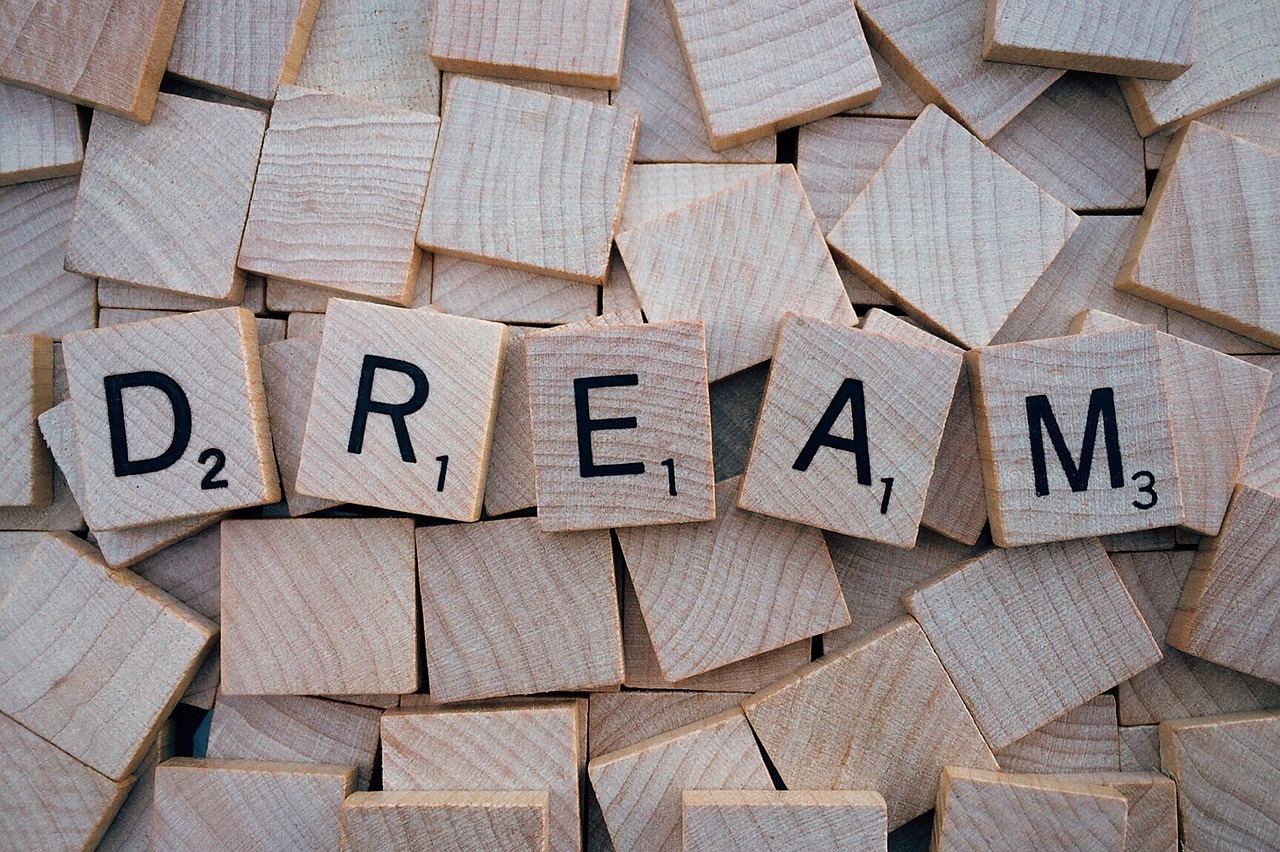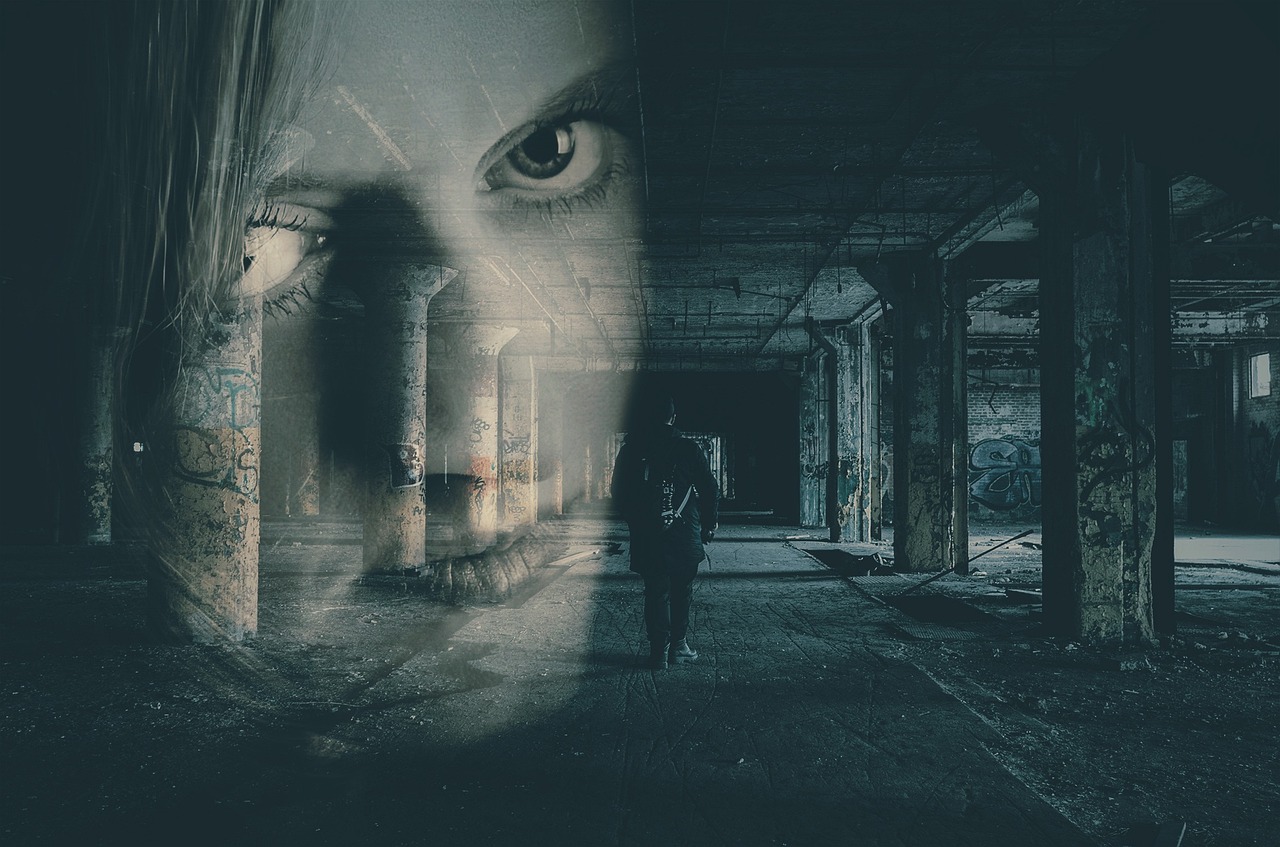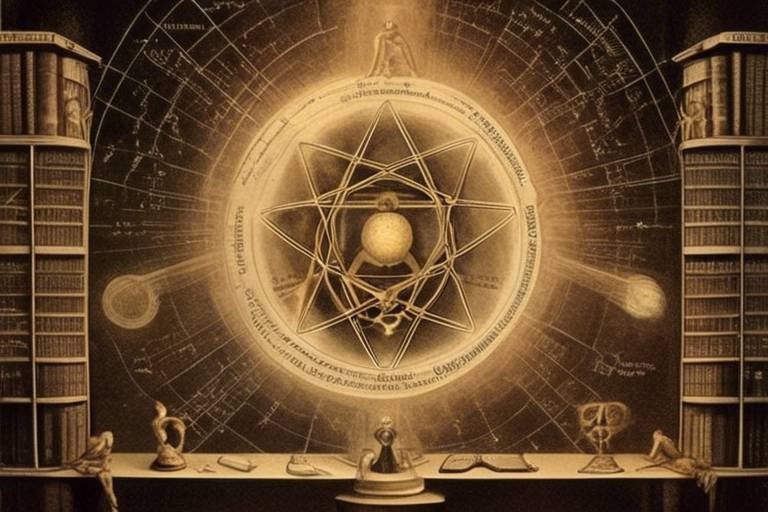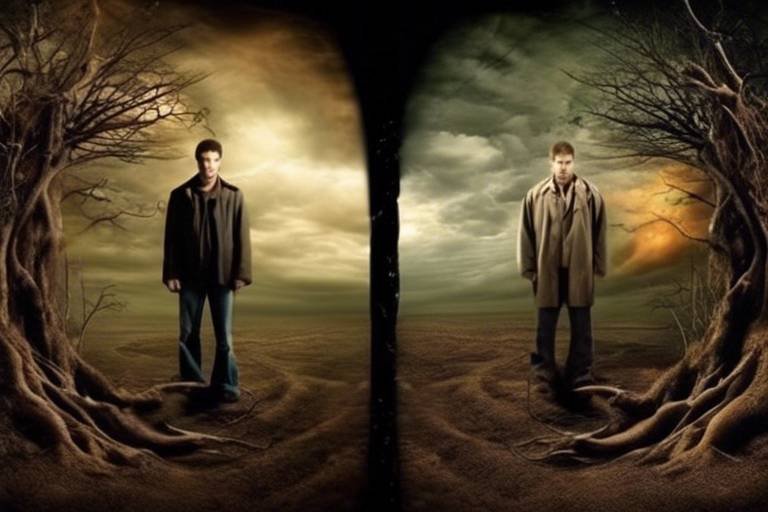Decoding Dreams - An Interdisciplinary Approach
Dreams have fascinated humanity for centuries, weaving a tapestry of mystery, intrigue, and insight. They are not just random images and sounds but rather a complex interplay of our thoughts, emotions, and experiences. This article explores the multifaceted nature of dreams, examining psychological, neurological, and cultural perspectives to better understand their significance and meaning in human experience. Why do we dream? What do our dreams signify? These questions have led researchers and thinkers from various fields to delve deeper into the enigmatic world of dreams.
When we think about dreams, the first thing that often comes to mind is their connection to our subconscious. The psychology of dreams is a rich field that delves into how our dreams reflect our innermost thoughts and feelings. According to renowned psychologist Sigmund Freud, dreams are the "royal road to the unconscious." He believed that dreams serve as a window into our unresolved conflicts and desires, often manifesting in symbolic forms. For example, dreaming of flying might symbolize a desire for freedom or escape from the mundane. Similarly, Carl Jung introduced the concept of the collective unconscious, suggesting that dreams can tap into shared human experiences and archetypes.
Shifting gears, let’s dive into the brain and explore the neurological processes that occur during dreaming. Have you ever wondered what happens in our brains while we sleep? During the REM (Rapid Eye Movement) phase of sleep, our brains become highly active, almost resembling wakefulness. This brain activity is crucial for various cognitive functions, including memory consolidation and emotional regulation. Understanding the different brain waves that occur during sleep can provide insights into how dreaming works and its connection to our overall well-being.
Our sleep is divided into several stages, each characterized by distinct brain wave patterns. The main types of brain waves include:
- Delta Waves: These are slow waves associated with deep sleep, crucial for physical restoration.
- Theta Waves: Present during light sleep and REM, they are linked to creativity and intuition.
- Alpha Waves: These waves occur when we are awake but relaxed, often leading to a meditative state.
Understanding these brain waves can enhance our comprehension of how dreaming influences our mental health and cognitive abilities.
REM sleep plays a pivotal role in our dreaming experience. This stage of sleep is not just about dreaming; it is essential for memory consolidation and emotional regulation. During REM sleep, our brains process and organize information from the day, helping us retain memories and learn new skills. Studies have shown that individuals deprived of REM sleep may experience heightened emotional responses and difficulties with memory retention. So, the next time you wake up from a vivid dream, remember that your brain has been hard at work sorting through your thoughts and feelings.
Neurotransmitters play a significant role in regulating sleep and influencing dream content. For instance, serotonin and dopamine are crucial for mood regulation and can affect the nature of our dreams. Low levels of serotonin may lead to more negative dream experiences, while higher levels can foster positive dreaming. Understanding these neurochemical processes opens a doorway to exploring how our brain chemistry impacts our dream life, providing a deeper understanding of why we dream what we do.
Dream interpretation is not a one-size-fits-all approach. Various psychological theories offer unique insights into understanding dreams. Freudian and Jungian interpretations, for instance, provide frameworks for analyzing personal and collective unconsciousness. Freudian analysis often focuses on the symbolism of dreams, suggesting that they reveal hidden desires and fears, while Jungian theory emphasizes the importance of archetypes and shared human experiences. Both perspectives enrich our understanding of the significance of dreams in our waking lives.
Dreams are not only a psychological or neurological phenomenon; they also hold cultural significance across different societies. From ancient civilizations to modern cultures, the way we perceive and interpret dreams can vary widely. In many cultures, dreams are seen as omens or messages from the divine, influencing decisions and guiding actions. Understanding these cultural perspectives can deepen our appreciation for the role of dreams in shaping beliefs and practices.
In ancient societies, dreams were often viewed as a direct line of communication with the gods. For example, the ancient Egyptians believed that dreams could foretell the future, while the Greeks saw them as messages from the divine. This rich historical context offers valuable insights into how contemporary interpretations of dreams have evolved over time.
Fast forward to today, and modern beliefs about dreams have transformed significantly. In contemporary society, dreams are often explored in therapeutic settings, serving as tools for self-reflection and personal growth. Many psychologists encourage clients to keep dream journals, emphasizing that understanding our dreams can lead to greater self-awareness and emotional healing. As we continue to decode the mysteries of dreams, it becomes clear that they are an integral part of the human experience, bridging the gap between our subconscious and conscious selves.
- What are the most common types of dreams? Common types include lucid dreams, nightmares, and recurring dreams.
- Can dreams predict the future? While many cultures believe in prophetic dreams, scientific evidence remains inconclusive.
- How can I remember my dreams better? Keeping a dream journal and practicing mindfulness can help improve dream recall.

The Psychology of Dreams
Dreams have long fascinated humanity, serving as a window into our subconscious. They are like a mysterious puzzle, inviting us to decipher their meanings and implications. Psychological theories surrounding dreams suggest that they are not just random images or stories; instead, they are reflections of our innermost thoughts, emotions, and unresolved conflicts. Have you ever woken up from a dream that left you feeling perplexed or even a bit shaken? This is because dreams often echo our daily struggles, desires, and fears, acting as a mirror to our waking life.
Sigmund Freud, the father of psychoanalysis, famously asserted that dreams are the "royal road to the unconscious." He believed that our dreams are laden with symbolism, revealing our hidden desires and repressed feelings. For instance, a dream about flying might symbolize a desire for freedom, while a dream of being chased could indicate an avoidance of certain responsibilities or anxieties. Freud's theory emphasizes the importance of interpreting these symbols to uncover deeper psychological truths. However, not all psychologists agree with Freud's approach. Carl Jung, another prominent figure in psychology, introduced the idea of the collective unconscious, suggesting that dreams can also tap into shared human experiences and archetypes.
In addition to these classic theories, contemporary psychology recognizes the role of dreams in emotional processing. Research indicates that dreaming can help us work through emotional experiences and traumatic events. For example, after a stressful day, you might find yourself dreaming about the events that unfolded, allowing your mind to process and integrate those experiences. This phenomenon is often referred to as emotional regulation, where dreams serve as a coping mechanism, helping us to navigate our feelings and responses to various situations.
Moreover, dreams can also enhance our creativity and problem-solving abilities. Have you ever had a "Eureka!" moment that came to you in a dream? Many artists, writers, and inventors have credited their dreams with inspiring their most significant works. The dream state allows for a unique blend of free association and imaginative thinking, often leading to innovative ideas that might not surface during waking hours.
To better understand the psychological significance of dreams, consider these key points:
- Subconscious Reflection: Dreams often reveal our hidden thoughts and feelings.
- Emotional Processing: They help us work through complex emotions and experiences.
- Creativity Boost: Dreams can inspire new ideas and solutions to problems.
In conclusion, the psychology of dreams is a rich and complex field that intertwines our emotional lives, creative processes, and subconscious mind. By exploring our dreams, we can gain valuable insights into ourselves, uncovering the hidden layers of our psyche. So, the next time you drift off to sleep, remember that your dreams may be more than mere fantasies; they are an invitation to explore the depths of your mind.
Q: What do dreams mean?
A: Dreams can have various meanings, often reflecting our subconscious thoughts, emotions, and experiences. They may symbolize desires, fears, or unresolved conflicts.
Q: Are dreams important for mental health?
A: Yes, dreaming plays a crucial role in emotional regulation and processing experiences, which can contribute positively to mental health.
Q: Can dreams enhance creativity?
A: Absolutely! Many people find that their dreams inspire creative ideas and solutions that they might not think of while awake.

The Neuroscience Behind Dreaming
Have you ever woken up from a dream and thought, "What on earth was that all about?" Dreams can feel like a whirlwind of emotions and scenarios, often leaving us puzzled. But what’s happening in our brains while we dream? To unravel this mystery, we need to dive into the fascinating world of neuroscience. It turns out that dreaming is not just random brain activity; it’s a complex interplay of various neurological processes that can significantly influence our mental health and cognition.
During the night, our brains cycle through different stages of sleep, with the most vivid dreams occurring during the Rapid Eye Movement (REM) phase. This stage is crucial because it’s when our brain is most active, almost as if we’re awake, yet our bodies are in a state of temporary paralysis. This paradox creates a unique environment where our subconscious can play out scenarios, confront fears, and even process emotions. Understanding this intricate dance of brain activity can shed light on how our dreams reflect our inner thoughts and feelings.
As we drift into sleep, our brain transitions through several stages, each characterized by different types of brain waves. These waves can be categorized into:
- Delta Waves: Present during deep sleep, crucial for restorative processes.
- Theta Waves: Associated with light sleep and the early stages of REM.
- Alpha Waves: Occur when we are awake but relaxed, often seen before sleep onset.
- Beta Waves: Indicate alertness and active thinking, which diminish as we fall asleep.
By understanding these brain waves, we can gain insights into how different sleep stages contribute to dreaming. For instance, the transition from theta to beta waves marks the onset of REM sleep, where dreams become more vivid and memorable. This cycle of brain activity not only affects the quality of our dreams but also plays a vital role in our overall well-being.
So, why is REM sleep so important? Well, studies have shown that REM sleep is essential for memory consolidation and emotional regulation. When we dream, our brains are busy processing information from the day, helping us store memories and make sense of our experiences. Imagine your brain as a filing cabinet, organizing and categorizing all the information you’ve gathered. Without sufficient REM sleep, this process can become disrupted, leading to difficulties in learning and emotional stability.
Now, let’s talk about the chemical messengers in our brains—neurotransmitters. Key players like serotonin and dopamine have significant roles in regulating sleep and influencing the content of our dreams. Serotonin, for instance, is known to promote feelings of happiness and well-being, which can lead to more positive dream experiences. On the flip side, disruptions in serotonin levels can contribute to nightmares or restless sleep. Dopamine, on the other hand, is linked to the brain's reward system and can affect the emotional tone of our dreams.
In essence, the intricate dance of neurotransmitters during sleep not only shapes the dreams we experience but also impacts our mental health. When these chemical balances are disrupted, it can lead to a cascade of issues, from insomnia to anxiety, highlighting the importance of a good night’s sleep for our overall psychological health.
- What is the purpose of dreaming? Dreams serve various purposes, including emotional processing, memory consolidation, and problem-solving.
- Can dreaming affect mental health? Yes, the quality of our dreams can influence our mood and mental health, with positive dreams often leading to better emotional states.
- How can I improve my dream recall? Keeping a dream journal and practicing mindfulness can enhance your ability to remember dreams.

Brain Waves and Sleep Cycles
Understanding the intricate relationship between brain waves and sleep cycles is essential for unraveling the mysteries of dreaming. Our brains are not static; they exhibit a range of electrical activities that vary significantly throughout the different stages of sleep. These brain waves are categorized into several types, each associated with distinct states of consciousness. The primary types of brain waves include Delta, Theta, Alpha, Beta, and Gamma. Each of these plays a crucial role during sleep, influencing not only our dreams but also our overall mental health.
During sleep, we cycle through various stages, primarily categorized into Non-Rapid Eye Movement (NREM) sleep and Rapid Eye Movement (REM) sleep. Each stage is characterized by specific brain wave patterns:
| Sleep Stage | Brain Waves | Characteristics |
|---|---|---|
| NREM Stage 1 | Theta Waves | Light sleep, transition between wakefulness and sleep. |
| NREM Stage 2 | Sleep Spindles and K-complexes | Moderate sleep, body temperature drops, heart rate slows. |
| NREM Stage 3 | Delta Waves | Deep sleep, crucial for physical restoration and growth. |
| REM Sleep | Beta Waves | Active brain, vivid dreams, essential for memory consolidation. |
As we transition through these stages, the brain waves shift accordingly. For instance, during the deep sleep phases, characterized by Delta waves, the body engages in vital restorative processes, allowing us to wake up feeling refreshed. On the other hand, during REM sleep, the brain exhibits activity similar to that of being awake, which is when most dreaming occurs. This phase is essential for emotional regulation and memory consolidation, as it helps us process experiences from the day.
But why should we care about these brain waves and sleep cycles? Well, understanding them can lead us to better sleep hygiene practices. For instance, if we recognize that our brains need to cycle through these stages to achieve restorative sleep, we might prioritize a consistent sleep schedule, limit screen time before bed, and create a relaxing bedtime routine. By fostering an environment conducive to healthy sleep cycles, we enhance our chances of entering REM sleep, where our dreams can flourish.
In summary, the dance of brain waves through the various stages of sleep not only shapes our dreams but also plays a pivotal role in our overall mental and physical health. By paying attention to these cycles, we can unlock the secrets of our subconscious and improve our well-being.
- What are the different types of brain waves? Brain waves are categorized into Delta, Theta, Alpha, Beta, and Gamma waves, each associated with different states of consciousness.
- What is the significance of REM sleep? REM sleep is crucial for vivid dreaming and is essential for memory consolidation and emotional regulation.
- How can I improve my sleep cycles? Establishing a consistent sleep schedule, creating a calming bedtime routine, and limiting screen time before sleep can help improve sleep cycles.

The Role of REM Sleep
When we talk about dreams, we can't overlook the fascinating world of REM sleep, or Rapid Eye Movement sleep, which is the stage of sleep where most dreaming occurs. Imagine your brain as a theater, and during REM sleep, the curtains rise for the most vivid and imaginative performances. This stage is not just a passive experience; it's a crucial part of our mental health and overall well-being. During REM sleep, our brains are highly active, almost as if we are awake, which is why the dreams we experience can feel so real and intense.
But why is REM sleep so important? Well, studies have shown that it plays a significant role in memory consolidation. Think of it like a filing system for your brain. During REM sleep, your brain sorts through the information you've gathered throughout the day, organizing and storing memories for future use. It's like a librarian putting books back on the shelves, ensuring everything is in its right place. Without adequate REM sleep, our ability to learn and retain information can suffer, leading to cognitive impairments.
Moreover, REM sleep is essential for emotional regulation. Have you ever woken up from a dream feeling a rush of emotions? That's because during REM sleep, your brain processes emotional experiences, helping you make sense of them. This emotional processing can lead to better coping mechanisms and resilience in facing life's challenges. It's like a mental detox, clearing out the emotional clutter that can weigh us down.
Interestingly, the duration of REM sleep can vary throughout the night. Typically, it occurs in cycles, with each REM period getting longer as the night progresses. Here's a quick overview of what happens:
| Sleep Cycle | Duration | Typical REM Duration |
|---|---|---|
| 1st Cycle | 90 minutes | 5-10 minutes |
| 2nd Cycle | 90 minutes | 10-20 minutes |
| 3rd Cycle | 90 minutes | 20-30 minutes |
| 4th Cycle | 90 minutes | 30-40 minutes |
This pattern shows how vital it is to get a full night's sleep. Skimping on sleep can lead to a significant reduction in REM sleep, which can affect your mood, creativity, and problem-solving abilities. So, if you find yourself tossing and turning, it might be time to reassess your sleep habits. After all, a well-rested brain is a happy brain!
In conclusion, REM sleep is not just a fascinating aspect of our nightly routines; it is a vital component of our psychological health. It helps us process emotions, consolidate memories, and even boosts our creativity. So the next time you wake up from a vivid dream, remember that your brain has been hard at work, helping you navigate the complexities of life.
- What happens if I don't get enough REM sleep?
Not getting enough REM sleep can lead to memory issues, emotional instability, and cognitive decline. - How can I improve my REM sleep?
To enhance REM sleep, maintain a consistent sleep schedule, create a relaxing bedtime routine, and ensure your sleep environment is comfortable. - Is it normal to wake up during REM sleep?
Yes, waking up during REM sleep is common, but frequent disruptions can affect the quality of your sleep.

Neurotransmitters and Dreaming
When we think about dreaming, the mind often wanders into the realms of fantasy and imagination. However, behind the curtain of our nightly escapades lies a complex web of chemicals known as neurotransmitters. These tiny messengers play a pivotal role in regulating not only our sleep cycles but also the vivid narratives that unfold in our dreams. To truly understand the significance of neurotransmitters in dreaming, we need to dive deeper into their functions and interactions within the brain.
Two of the most crucial neurotransmitters involved in the dreaming process are serotonin and dopamine. Serotonin is often dubbed the "feel-good" neurotransmitter, primarily because it contributes to feelings of well-being and happiness. Its levels fluctuate throughout the sleep cycle, influencing the transition between sleep stages. For instance, during REM (Rapid Eye Movement) sleep, when most dreaming occurs, serotonin levels drop significantly, allowing other neurotransmitters to take the lead. This drop is essential for enabling the brain to become more creative and imaginative, leading to the bizarre and often surreal experiences we encounter in our dreams.
Dopamine, on the other hand, is associated with motivation and reward. It plays a significant role in the brain's reward system, which is activated during dreaming. This activation can lead to dreams that feel incredibly real and emotionally charged. For example, you might find yourself dreaming about achieving a long-desired goal or reliving a cherished memory, all thanks to the dopamine surge that enhances emotional experiences during sleep. The interplay between serotonin and dopamine creates a unique environment in the brain that fosters not only creativity but also emotional processing.
To illustrate the relationship between neurotransmitters and dreaming, consider the following table:
| Neurotransmitter | Role in Dreaming | Effects on Sleep |
|---|---|---|
| Serotonin | Regulates mood and emotional tone of dreams | Decreases during REM sleep, allowing for vivid dreaming |
| Dopamine | Enhances motivation and emotional experiences in dreams | Increases during REM sleep, contributing to dream intensity |
Moreover, other neurotransmitters, such as acetylcholine, also play a significant role in dreaming. Acetylcholine is particularly active during REM sleep, promoting brain activity and facilitating the vivid imagery we often associate with dreams. The intricate balance of these neurotransmitters not only influences the content of our dreams but also affects how we remember them upon waking. This is crucial because many people often forget their dreams shortly after waking, a phenomenon that can be attributed to the fluctuating levels of these chemicals in the brain.
In essence, understanding the role of neurotransmitters in dreaming opens a window into the complex processes that govern our sleep and dream experiences. Each night, as we drift into slumber, our brains are engaged in a delicate dance of chemical interactions, crafting the stories that will play out in our minds. So, the next time you wake up from a dream that feels particularly vivid or emotionally charged, take a moment to appreciate the intricate biochemical orchestra that made it possible.
- What are the main neurotransmitters involved in dreaming? The primary neurotransmitters involved in dreaming are serotonin, dopamine, and acetylcholine, each playing a unique role in how we experience dreams.
- How do neurotransmitters affect the content of dreams? Neurotransmitters influence the emotional tone and vividness of dreams. For instance, low serotonin levels during REM sleep allow for more creative and surreal dream experiences.
- Can neurotransmitter imbalances affect dreaming? Yes, imbalances in neurotransmitter levels can lead to disturbances in sleep and dreaming, potentially resulting in nightmares or a lack of dream recall.

Psychological Interpretations of Dreams
When it comes to the realm of dreams, psychology takes us on a fascinating journey into the depths of our subconscious. Dreams are not merely random images or fleeting thoughts; they are a window into our inner world, reflecting our deepest desires, fears, and unresolved conflicts. Renowned psychologists like Sigmund Freud and Carl Jung have laid the groundwork for understanding the intricate tapestry of our dreams. Freud famously suggested that dreams are the "royal road to the unconscious," where repressed thoughts and wishes manifest in symbolic forms. For instance, dreaming of flying might symbolize a desire for freedom or escape from life's constraints, while nightmares often reveal anxieties that we may not confront in our waking life.
On the other hand, Jung introduced the concept of the collective unconscious, positing that our dreams can tap into shared archetypes and symbols that resonate across cultures and generations. This idea suggests that our dreams might not only reflect personal experiences but also connect us to a larger human experience. Think of it as a universal language, where certain symbols, like water or the journey motif, have meanings that transcend individual interpretation. Jung believed that by analyzing these symbols, we could gain insights into our personal growth and emotional health.
Moreover, contemporary psychology emphasizes the importance of understanding the context of our dreams. The same dream can have different meanings depending on the dreamer's life circumstances. For example, a dream about losing a job could signify not just fear of unemployment but also a deeper exploration of identity and self-worth. This personalized approach to dream interpretation allows for a richer understanding of what our dreams are trying to communicate. To illustrate this, consider the following table that summarizes common dream themes and their potential interpretations:
| Dream Theme | Possible Interpretation |
|---|---|
| Falling | Feelings of insecurity or loss of control |
| Being chased | Running from something in waking life, often anxiety or fear |
| Taking an exam | Self-evaluation or fear of failure |
| Flying | Desire for freedom or escape from limitations |
In addition to Freudian and Jungian interpretations, modern psychology also recognizes the role of cognitive behavioral therapy (CBT) in understanding dreams. CBT techniques often encourage individuals to reflect on their dreams and consider how they relate to their waking thoughts and behaviors. By analyzing recurring dreams or themes, individuals can uncover patterns that might be affecting their mental health. This process can lead to breakthroughs in understanding oneself, promoting healing and personal growth.
Ultimately, the psychological interpretations of dreams invite us to embark on a journey of self-discovery. They challenge us to ask questions about our lives and our emotional landscapes. What do your dreams reveal about your current state of mind? Are there hidden messages waiting to be uncovered? By engaging with our dreams thoughtfully, we can unlock a treasure trove of insights that can guide us toward a more fulfilling life.
- What do dreams mean? Dreams can reflect our subconscious thoughts, emotions, and unresolved conflicts.
- How can I interpret my dreams? Consider the symbols and themes in your dreams, and reflect on how they relate to your waking life.
- Are all dreams significant? While some dreams may hold deeper meanings, others might simply be a reflection of daily experiences.
- Can dreams help with personal growth? Yes, analyzing dreams can provide insights that facilitate self-reflection and emotional healing.

Cultural Perspectives on Dreams
Diving into the unveils a rich tapestry of beliefs and interpretations that span across time and geography. Different cultures have long regarded dreams as more than mere figments of our imagination; they see them as vital messengers carrying profound meanings. For instance, in many Indigenous cultures, dreams are considered a bridge between the physical and spiritual realms. They are often viewed as a means of communication with ancestors or the spirit world, guiding individuals in their daily lives. Imagine waking up from a vivid dream and believing it could hold the key to your next big decision! This perspective adds a layer of gravity to our nightly escapades into the dream world.
In contrast, Western societies have historically approached dreams from a more psychological angle, often influenced by the theories of Sigmund Freud and Carl Jung. Freud famously suggested that dreams are the "royal road to the unconscious," revealing our hidden desires and unresolved conflicts. Jung, on the other hand, emphasized the collective unconscious, suggesting that dreams tap into universal symbols shared across humanity. This intersection of psychology and culture highlights how our interpretations of dreams can be colored by our societal norms and personal experiences.
Moreover, some cultures incorporate dreams into their healing practices. In various African communities, dreams are often seen as prophetic and are used in rituals to seek guidance or make important decisions. For instance, the Zulu people believe that dreams can predict the future and guide community leaders in their choices. This reverence for dreams emphasizes their significance beyond individual experience, impacting communal values and practices.
Interestingly, the significance of dreams also varies within cultures based on gender roles. In certain societies, women's dreams may be interpreted as more intuitive or spiritually significant, while men's dreams might be viewed through a lens of pragmatism. This variance raises questions about how cultural norms shape our understanding of not just dreams, but also the dreamers themselves. Are we restricting the potential interpretations of dreams based on outdated gender stereotypes? It’s a thought-provoking question that invites deeper reflection.
Today, the influence of globalization is further enriching our understanding of dreams. With the rise of the internet and social media, cultural exchange has led to a melting pot of dream interpretations. People from different backgrounds share their dreams online, leading to a fusion of ideas and beliefs. This cross-cultural dialogue is reshaping how we view dreams, allowing for a more inclusive understanding that honors both ancient traditions and modern insights.
To summarize, dreams serve as a fascinating lens through which we can explore cultural identities, values, and beliefs. They are not merely personal experiences but are deeply entwined with the fabric of society. By examining dreams from various cultural perspectives, we can appreciate their significance and the diverse ways they influence human experience.
- What role do dreams play in different cultures? Dreams are often seen as messages from the divine or a means of communication with ancestors, guiding individuals in their lives.
- How do psychological theories influence dream interpretation? Theories by Freud and Jung have shaped modern interpretations, viewing dreams as reflections of our unconscious desires and collective symbols.
- Can dreams be prophetic? Many cultures believe that dreams can predict the future or provide guidance, especially in spiritual or communal contexts.
- How has globalization affected the interpretation of dreams? Cultural exchange through the internet has led to a blending of dream interpretations, enriching our understanding of their significance.

Dreams in Ancient Civilizations
Throughout history, dreams have held a profound significance in the lives of individuals across various cultures. In ancient civilizations, dreams were not merely seen as random occurrences during sleep; rather, they were interpreted as powerful omens or messages from the divine. For instance, the ancient Egyptians believed that dreams were a direct line of communication with the gods. They meticulously documented their dreams in hieroglyphics, often seeking the counsel of priests to decipher their meanings. This practice underscores the importance of dreams in shaping their spiritual and daily lives.
Similarly, the Mesopotamians viewed dreams as prophetic, believing that they could predict the future or provide guidance in times of uncertainty. They created detailed dream dictionaries that categorized dreams and their interpretations, showcasing their commitment to understanding the subconscious messages that might influence their fate. This practice wasn't just a personal endeavor; it often involved the community, where shared dreams could lead to collective decision-making. The significance of dreams in this context reveals how intertwined they were with the societal fabric of ancient civilizations.
In ancient Greece, philosophers like Aristotle and Plato also contributed to the discourse on dreams. Aristotle, for instance, posited that dreams were reflections of our waking life, a window into our desires and fears. He believed that understanding our dreams could lead to greater self-awareness and personal growth. This philosophical perspective laid the groundwork for the psychological interpretations of dreams that would emerge centuries later.
Meanwhile, the indigenous cultures of North America often regarded dreams as a means of connecting with ancestors and the spiritual realm. Vision quests, which involved prolonged periods of fasting and solitude, were integral to this process. During these quests, individuals sought dreams that would provide insight and guidance for their lives. The importance of dreams in these cultures is a testament to their role as a bridge between the physical and spiritual worlds.
In summary, dreams in ancient civilizations were not only a source of personal insight but also a vital aspect of cultural identity and spiritual practice. The interpretations and significance attributed to dreams varied widely, yet they all shared a common thread: the belief that dreams hold valuable messages that can guide and influence human behavior. As we explore the evolution of dream interpretation through the ages, it becomes clear that our fascination with dreams is deeply rooted in our history.
- What did ancient civilizations believe about dreams? Ancient civilizations often viewed dreams as messages from the divine or prophetic insights, playing a significant role in their spiritual and daily lives.
- How did the Greeks interpret dreams? Greek philosophers like Aristotle believed dreams reflected our waking life, offering insights into our desires and fears, thus contributing to self-awareness.
- What role did dreams play in indigenous cultures? In many indigenous cultures, dreams were seen as a connection to ancestors and the spiritual realm, often guiding individuals during vision quests.

Modern Cultural Beliefs
In today's fast-paced world, dreams have taken on a new dimension, evolving from ancient omens and divine messages to symbols of personal growth and self-discovery. Many people now view dreams as a window into their subconscious, a place where their innermost thoughts, fears, and desires come to life. This modern interpretation encourages individuals to explore their dreams for insights into their waking lives, fostering a deeper understanding of themselves. But how did we get here? The journey of dreams through culture is as fascinating as the dreams themselves!
In contemporary society, dreams are often linked to personal development and therapy. Therapists frequently utilize dream analysis as a tool to help clients uncover unresolved issues or to gain clarity on life choices. They might ask questions like, "What do you think this dream is trying to tell you?" or "How did this dream make you feel?" Such inquiries not only open the door to introspection but also empower individuals to take charge of their mental and emotional well-being. The act of discussing dreams can be cathartic, allowing people to articulate feelings they may not fully understand while also connecting with others over shared experiences.
Moreover, the rise of technology and social media has transformed how we perceive and share our dreams. Platforms like Instagram and TikTok have given birth to communities dedicated to dream interpretation, where users share their dreams and seek feedback from others. This digital exchange fosters a sense of belonging and collective exploration, as people realize they are not alone in their dream experiences. It’s like having a global dream-sharing circle at your fingertips!
Interestingly, modern cultural beliefs about dreams also intersect with spirituality. Many individuals today embrace the idea that dreams can serve as spiritual messages or guidance from a higher power. This belief often leads to practices such as dream journaling, where people record their dreams upon waking to decipher their meanings later. Some even turn to meditation or lucid dreaming techniques to enhance their dream experiences, seeking to unlock deeper layers of understanding and connection.
To illustrate the various modern beliefs surrounding dreams, consider the following table that summarizes key perspectives:
| Belief | Description |
|---|---|
| Personal Growth | Dreams are seen as tools for self-discovery and emotional healing. |
| Therapeutic Insight | Dream analysis is used in therapy to uncover subconscious issues. |
| Spiritual Messages | Dreams are interpreted as guidance from a higher power or the universe. |
| Community Sharing | Social media platforms allow for collective dream interpretation and support. |
In summary, modern cultural beliefs about dreams reflect a rich tapestry of psychological, spiritual, and social dimensions. They encourage individuals to embark on a journey of self-exploration, connecting with their inner selves and with others in the process. As we continue to navigate the complexities of our lives, dreams remain a powerful tool for understanding and growth, bridging the gap between our waking realities and the mysteries of our subconscious.
- What do dreams mean? Dreams can have various meanings depending on the individual’s experiences and emotions. They often reflect our subconscious thoughts and feelings.
- Can dreams predict the future? While some cultures believe dreams can foretell future events, most psychological perspectives view them as reflections of our current state rather than predictions.
- How can I remember my dreams? Keeping a dream journal by your bedside and writing down your dreams immediately after waking can help improve your dream recall.
- Are all dreams meaningful? Not all dreams may hold significant meaning; some can simply be random thoughts or reflections of daily life.
Frequently Asked Questions
- What are dreams and why do we have them?
Dreams are a series of thoughts, images, and sensations occurring in a person's mind during sleep. They often reflect our subconscious thoughts, emotions, and unresolved conflicts. The exact reason why we dream is still a mystery, but many theories suggest that dreaming helps with memory consolidation, emotional regulation, and problem-solving.
- What is REM sleep and why is it important for dreaming?
REM (Rapid Eye Movement) sleep is a unique phase of sleep characterized by rapid movement of the eyes, increased brain activity, and vivid dreams. It's crucial for dreaming because it allows the brain to process and consolidate memories, regulate emotions, and enhance creativity. Without sufficient REM sleep, you may experience cognitive impairments and emotional disturbances.
- Can dreams predict the future?
While many cultures believe that dreams can serve as omens or messages, there is no scientific evidence to support the idea that dreams can predict the future. Instead, dreams often reflect our current thoughts, feelings, and experiences. They may provide insights into our subconscious, but they shouldn't be taken as prophetic.
- What do different cultures believe about dreams?
Cultural beliefs about dreams vary widely. In some ancient civilizations, dreams were seen as messages from the gods or the deceased. Today, many cultures view dreams as a means of self-reflection or personal growth. For instance, in some Indigenous cultures, dreams are considered a way to connect with ancestors or the spiritual world.
- How can I improve my dream recall?
Improving dream recall can be achieved through several techniques. Keeping a dream journal by your bedside and writing down your dreams as soon as you wake up can help. Additionally, setting the intention to remember your dreams before you sleep can enhance recall. Regular sleep patterns and reducing stress can also contribute to better dream recollection.
- What role do neurotransmitters play in dreaming?
Neurotransmitters like serotonin and dopamine play a significant role in regulating sleep and influencing dream content. Serotonin helps regulate mood and anxiety, while dopamine is linked to the brain's reward system. Imbalances in these neurotransmitters can affect sleep quality and the vividness of dreams.
- Are nightmares common, and what causes them?
Yes, nightmares are quite common and can be triggered by a variety of factors, including stress, anxiety, trauma, or certain medications. They often occur during REM sleep and can leave a person feeling distressed upon waking. Addressing underlying stressors and practicing relaxation techniques can help reduce the frequency of nightmares.
- What can I do if I frequently experience nightmares?
If you frequently experience nightmares, consider talking to a mental health professional. They can help identify any underlying issues and suggest coping strategies. Techniques such as imagery rehearsal therapy, where you visualize a positive ending to your nightmare, can also be effective in reducing their occurrence.



















